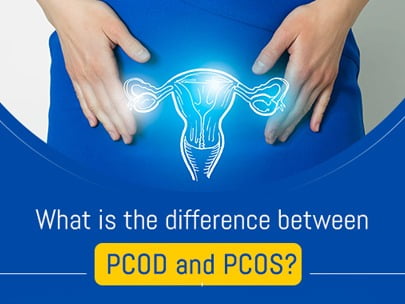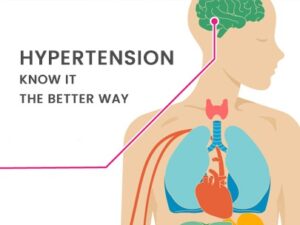Polycystic Ovarian Disorder (PCOD) and Polycystic Ovarian Syndrome(PCOS) are widely observed medical conditions in women that relate to hormones and the endocrine system respectively. PCOD and PCOS if ignored and left untreated, can cause further health complications like diabetes, obesity, heart diseases, and high cholesterol. It might also affect pregnancy.
However, there are some important differences between the two and this article is aimed to create an awareness of the same in addition to highlighting the causes, symptoms and treatment available.
Differences between PCOD and PCOS
Here’s how PCOD and PCOS are different from each other
PCOD
- PCOD occurs due to Hormonal Imbalance
- Possibility of it leading to infertility is very less
- There are few cysts observed
- PCOD can be cured with treatments available
- Key signs – Weight gain and irregular menstrual cycle.
PCOS
- PCOS is a medical condition associated with the endocrine system
- Can cause infertility
- Quantity of cysts that could be observed in ovaries in much more than PCOD
- Very difficult to cure
- Key signs – loss of hair and disorder in the Pelvic area.
However, as per studies conducted and reports received, PCOD is more widely observed than PCOS. Also, the challenges involved in conceiving are lesser in women suffering from PCOD than in PCOS.
What are the Causes of PCOD and PCOS?
While the exact causes of PCOD and PCOS are not exactly known, studies conducted so far in this direction link it with these probable factors:
- Hereditary
- High demand for Insulin
- Lifestyle Variations
- Inflammation due to Obesity
What are the Symptoms of PCOD and PCOS?
Some of the widely observed causes of PCOD and PCOS are:
- Excess quantity of presence of male sex hormones
- Inconsistent periods
- Abnormally matured eggs
- Loss of hair
- Obesity
- Changes in skin colour
Treatment for PCOD and PCOS
Before deciding on a suitable treatment, doctors suggest certain medical tests as the type of treatment may vary from individual to individual.
- Medication
Depending upon the severity of the situation and symptoms your doctors might recommend medications to treat hormone balance and regulate ovulation.
- Surgery
Surgery could well be an option if normal treatments fail to yield any result. Your doctors will present before you the type of surgery involved, risk factors and recovery time before seeking your consent for the surgery.
- Diet and Lifestyle Management
This is one of the best waysto keep your symptoms in control. One of the best ways to fare and keep your symptoms in check is Proper Weight Management. So, women who have PCOS must work out regularly and maintain a healthy lifestyle by consuming only a PCOS diet. Few lifestyle recommendations can also help control any chances of developing PCOD. women suffering from PCOD.
The Final Word
If you notice any symptoms of PCOS and PCOD, you must reach out to a well-known gynaecologist for immediate treatment. One of the most widely spoken hospitals for treating PCOD and PCOS successfully is Prakriya Hospital in Bangalore. The hospital not only has an excellent team of versatile gynaecologists but is also supported by state-of-the-art facilities and experienced support staff. The medical team at Prakriya is vastly experienced in identifying the ill effects of such diseases with proper diagnosis.




